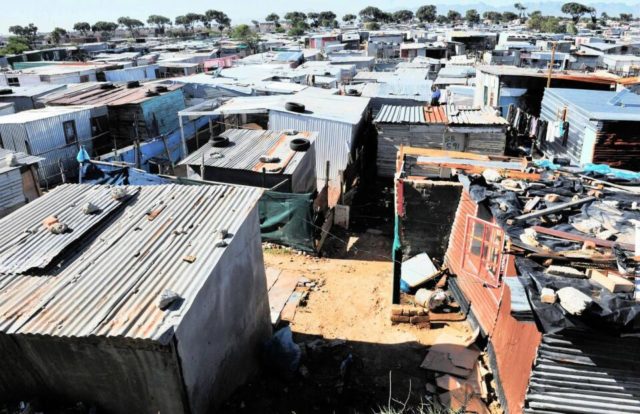The loss of jobs and desperately needed revenue to the state resulting from Covid-19-related restrictions will negatively impact the critical funding of social protection programmes.
THE SOUTH African government’s overly stringent regulations around Covid-19 have largely exacerbated the suffering of citizens through job losses and hurt state coffers, a recent virtual conference heard.
President Cyril Ramaphosa’s government, which imposed a lockdown from March 27 aimed at slowing down infections of the coronavirus, has come in for criticism for maintaining some restrictions for too long, while the rationale of some, such as the ban on the sale of alcohol and cigarettes, have been questioned.
Addressing the webinar, the director of the Centre of Excellence in Food Security at the University of the Western Cape, Professor Julian May, said the loss of jobs and desperately needed revenue to the state resulting from Covid-19-related restrictions would negatively impact the critical funding of social protection programmes.
His remarks were contained in a press release from the centre summarising the outcome of the virtual conference, which examined the impact of Covid-19 on nutritional and food insecurity.
Citing findings from three recent studies, May said half of South Africa’s total population had gone into the lockdown – which initially grounded most business activity except for essential services such as the health sector – with no food in their homes.
The percentage of respondents reporting no income at all rose from five percent to 15 percent by the sixth week of the lockdown, and by April, more than half of households said they had run out of money to buy food.
Adults were also going hungry to shield their children, May added, with 34 percent of people reporting they had gone hungry or without anything to eat on at least one day.
Urging the government to “leave the economy to do its job” the professor cited regulations such as that dictating what kind of shoes and clothing South Africans could buy, and the barring of sales of vegetable seeds in the first weeks of lockdown, among the “unwise” decisions that failed to take the economic well-being of citizens into account.
“Attempts were made to manage the economy and direct scarce resources rather than focusing on the vital message of what individuals should be doing to self-protect,” May told the forum, saying the government took action that elsewhere in the world had been shown to be unrelated to the pandemic.
“I am extremely anxious about the longer-running impact of the loss of jobs and the critical loss of revenue to the state that we very badly need to fund social protection programmes.”
Dr Chantell Witten, an affiliate of the Centre of Excellence in Food Security and a nutrition specialist at the University of the Free State, said the lockdown had resulted in decreased access to food, inadequate food relief in schools and lower access to primary health care.
This, she said, negatively affected critical health programmes including routine immunisation, growth monitoring and malnutrition screening.
“There is speculation of increasingly severe acute malnutrition in a scenario where more than three million people have lost their jobs, two thirds of them women. It’s clear that women-headed households and their children are bearing the brunt of the crisis,” Witten added.
She pointed out that the R870 (US$50) cost of the nutritious food basket, which serves as a tool to monitor the cost and affordability of healthy eating, was almost double the monthly child support grant handed out by the social welfare department to poor households.
Witten and May also criticised the government’s decision early on in the lockdown to prohibit street traders from operating, saying this had undermined nutrition since most of the country’s poor traditionally buy fresh vegetables from these informal sources.
May urged the government to learn from its mistakes and be better prepared for the next crisis.
“Job losses have an immediate impact on food security, not just of those who were employed, but also those dependent on them,” he said.
“The closure of businesses and slowing of the economy will reduce the government’s ability to assist.”
– African News Agency (ANA)








